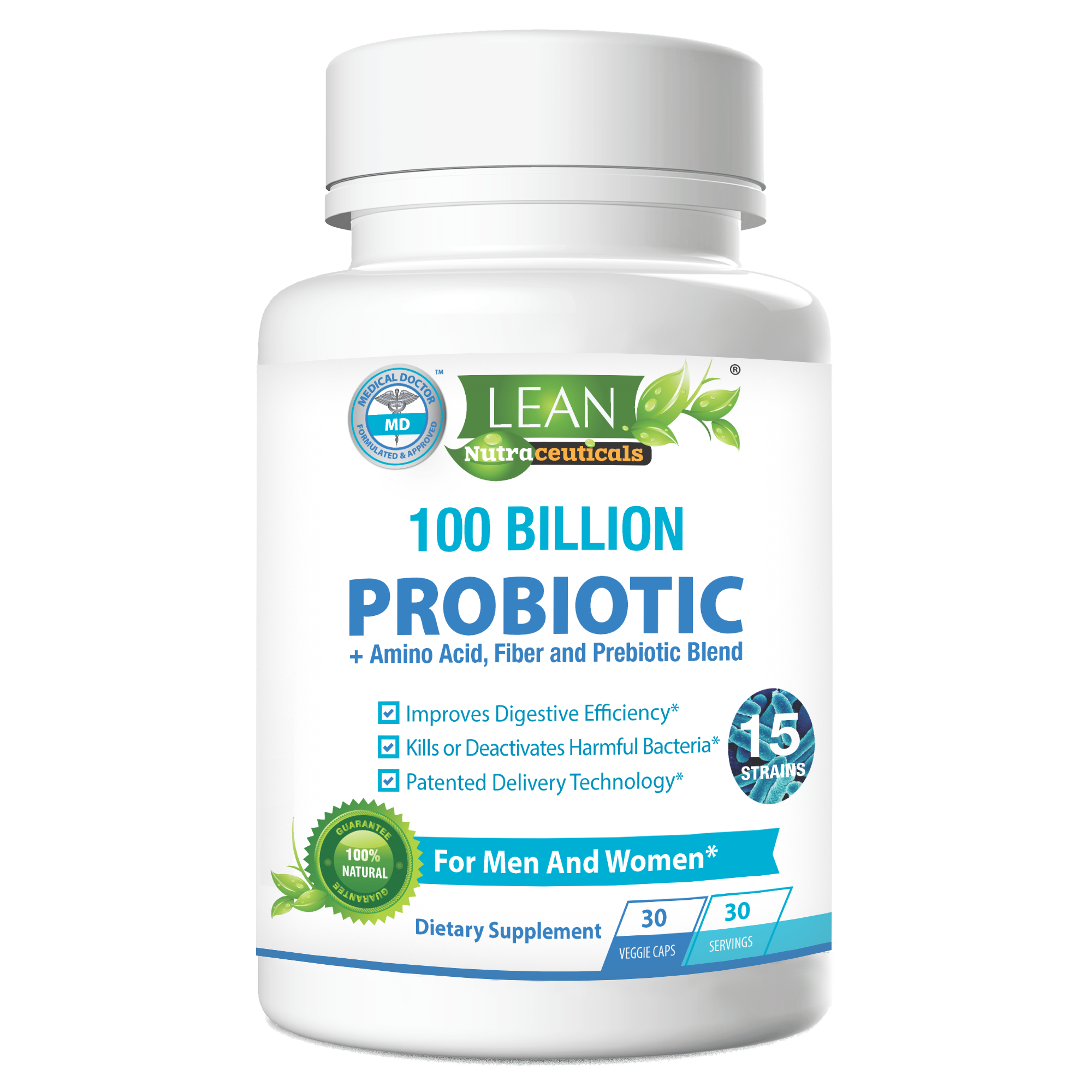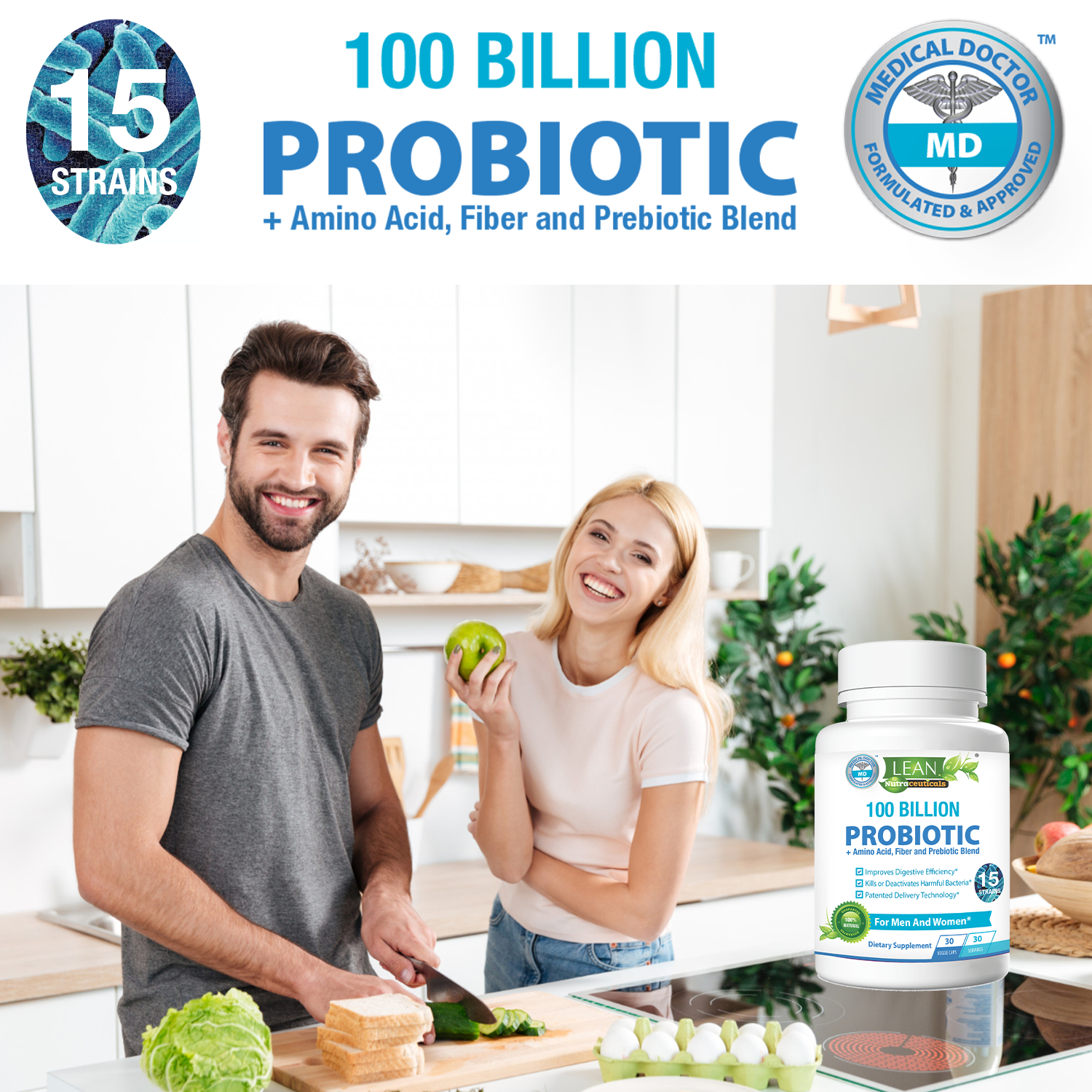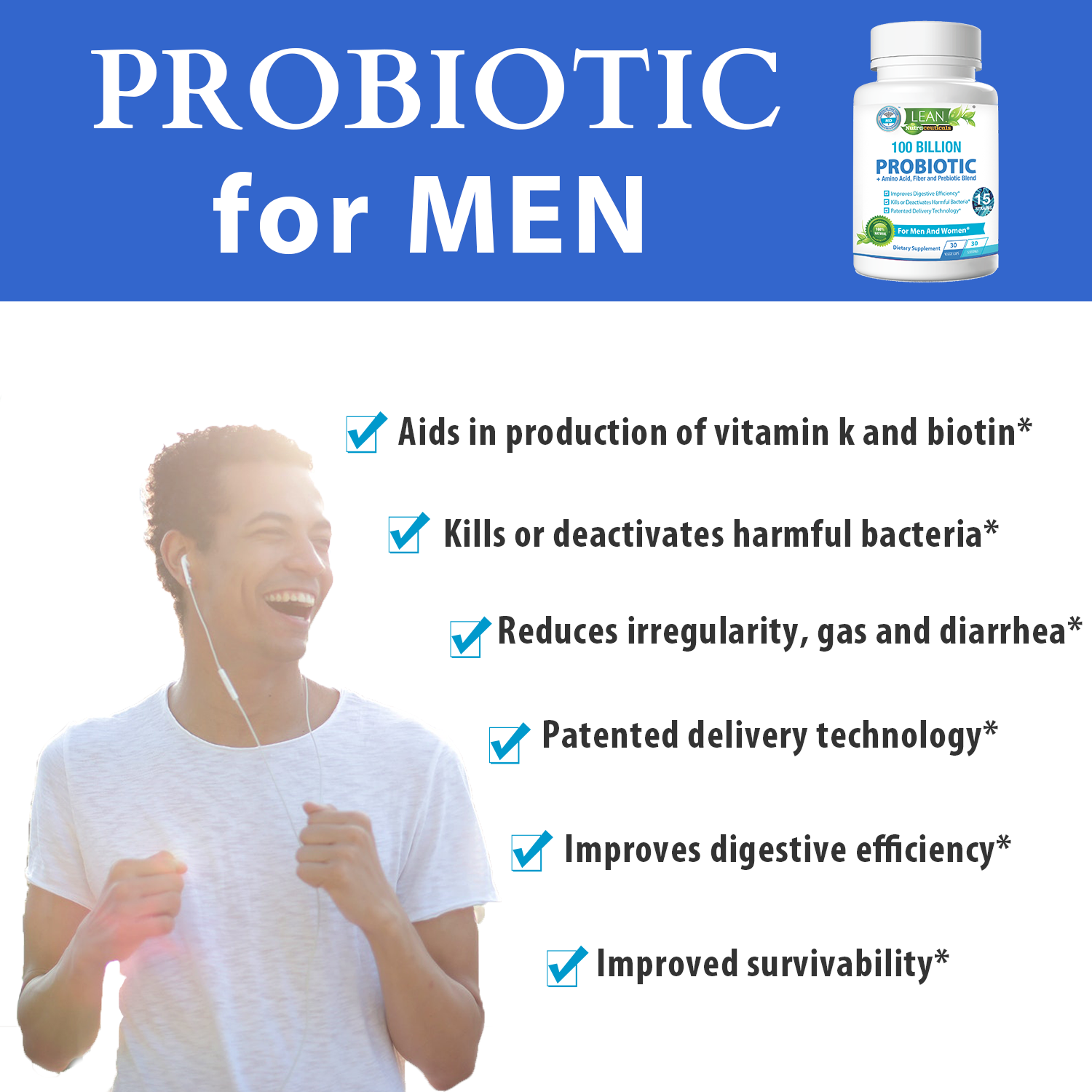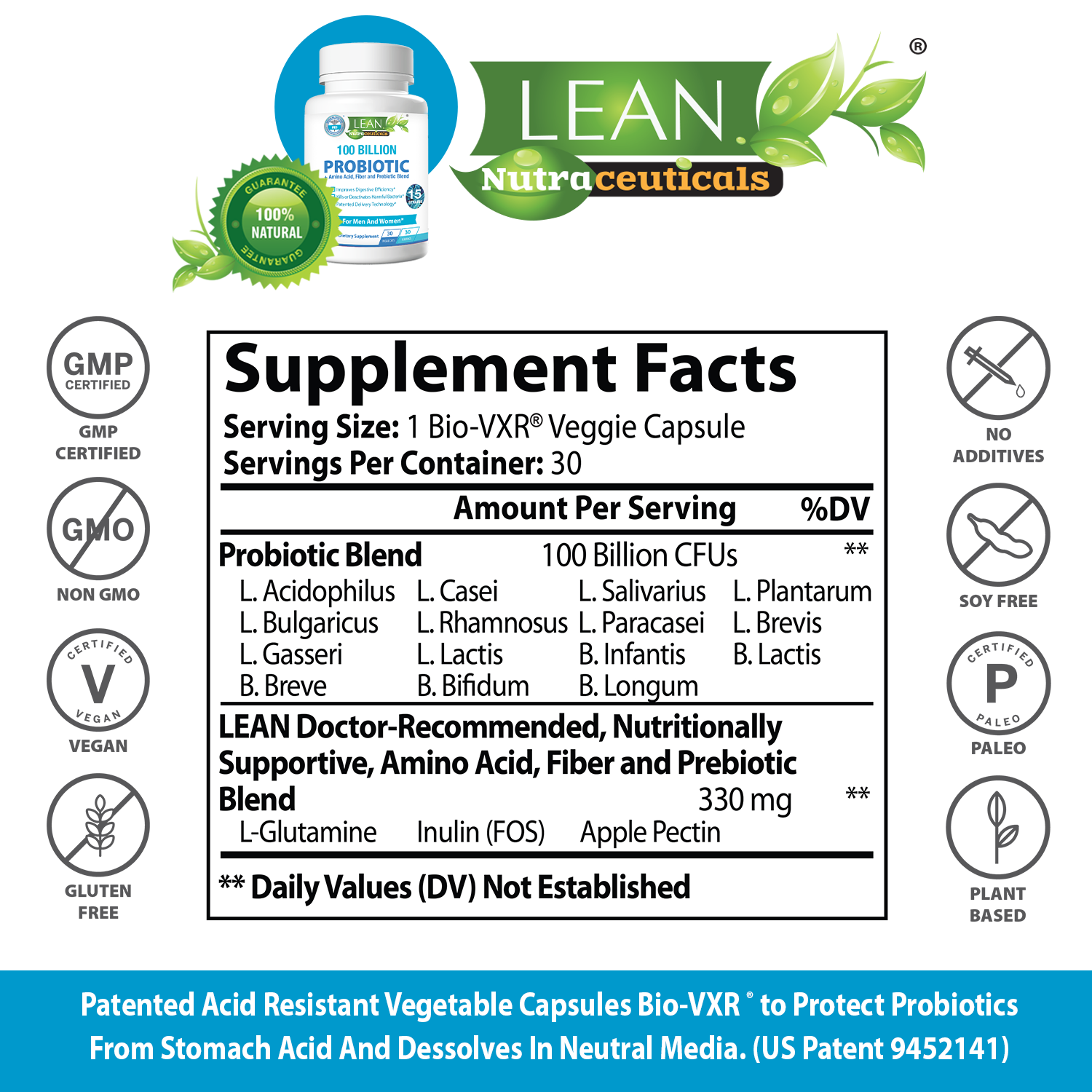Should I take Probiotic before, during or after a meal?
You should take 1 capsule daily at a time that is convenient for you. There is no specific time of day, or meal timing requirement when taking Probiotic.
Does Probiotic Need to be Refrigerated?
25 years ago when probiotics were beginning to make their way into the consumer market the bacterial technology was far different than today and back then if you didn’t refrigerate your probiotics there was a good chance they would die off. Today, the technologies have advanced and probiotics such as our Probiotic are stable at room temperature for extended periods of time. This means that your MD Probiotic bottles do not need to be stored in the fridge, however, you should avoid exposing them to high heat for extended periods of time.
What are the benefits to taking Probiotic?
Probiotic consumption has been shown to have an incredible list of benefits. Because our Medical Advisory Board formulated 100 Billion Probiotic with 15 specifically selected strains you can expect unparalleled performance. Some of the most common benefits of probiotic consumption are:
- Improved Digestion
- Reduced Gastric Distress
- Reduction in the symptoms of Leaky Gut
- Relief from Diarrhea
Moving beyond the digestive system, some individuals report relief from:
- Skin conditions, like eczema
- Urinary and vaginal health issues
- Allergies and colds
- Oral health conditions
Why is Probiotic's Patented Delivery Technology So Important?
In order for any probiotic to be effective the live cultures contained within the capsule must be delivered to the small intestine. That of course means that they must first pass through the harsh, acidic environment of your stomach. By design, your stomach is an effective food processor and bacteria destroyer. This means that up to 95% of the live probiotic organisms that are packaged in run of the mill vegetable or gelatin capsules will perish in the stomach and provide ZERO benefit to you. That is why we went to the extra trouble and expense to find a delivery technology that delivers the probiotics to your small intestine thereby providing you with the maximum benefit and the maximum value for your hard earned dollar.
Why 15 Strains? Most Probiotics Seem to Have Just 5 or So?
When we formulated our Probiotic we had two primary goals.
- To create a Probiotic with the broadest benefit spectrum ever brought to the consumer market.
- To create a Probiotic that delivered the maximum amount of live, active cultures to the small intestine where they can have the most positive impact.
What our having met these goals means to you is that when you take Probiotic you can be assured that virtually no matter what the source of your gastric distress you have one or more live active cultures ready to go to work for you. Other less diverse and less concentrated probiotics simply cannot offer a comparable level of effectiveness.
Why is it Important to Have Prebiotics Included?
Prebiotics are an essential part of a high-performance Probiotic such as our Probiotic. Prebiotics provide an essential food source for these “good” bacteria strains that allows them to grow, flourish and overpower the “bad” bacteria that are the root cause of your issues.
What Do the Different Probiotic Strains Do for Me?
- Bifidobacterium breve – Bifidobacterium breve is essential for colon health, especially if you’ve taken antibiotics. Studies have found that many digestive problems coincide with low levels of B. breve.
- Bifidobacterium infantis – Bifidobacterium infantis supports the digestive system by releasing an acid that keeps harmful organisms from taking hold. It’s especially helpful for people suffering from digestive ailments or occasional constipation.[3]
- Bifidobacterium bifidum – Bifidobacterium bifidum is a household name in probiotic strains (if there is such a thing). It keeps unwanted bacteria out, eases digestion, and boosts the immune system. It plays an important role in immune function and allergy response; and encourages normal, healthy looking skin. [4]
- Bifidobacterium lactis – Bifidobacterium lactis neutralizes gliadin, the wheat protein responsible for gluten sensitivity. Gliadin also damages the intestinal lining and can cause leaky gut.
- Bifidobacterium longum – Bifidobacterium longum helps keep acid levels balanced. It’s especially helpful for anyone taking antibiotics.
- Lactobacillus acidophilus – Lactobacillus acidophilus supports digestion, particularly lactose digestion, and boosts the immune system.
- Lactobacillus brevis – Helping out on both ends, Lactobacillus brevis is soothing to both oral and colon tissue. [5]
- Lactobacillus bulgaricus – Lactobacillus bulgaricus creates natural antibiotics in your gut that fight invading organisms. It also releases acids that neutralize toxins and promote balance.
- Lactobacillus casei – Lactobacillus casei supports digestion, the immune system, and soothes the bowels.[6]
- Lactobacillus gasseri – Lactobacillus gasseri supports digestion, balanced blood sugar, and encourages a normal body weight. [7]
- Lactococcus lactis – Lactococcus lactis helps digestion and encourages a normal gut environment, especially helping to defend against leaky gut.
- Lactobacillus plantarum – Lactobacillus plantarum produces L. lysine, an amino acid that supports calcium absorption, hormone production, and boosts the immune system. It’s often used as a remedy for bowel disorders.
- Lactobacillus paracasei – Lactobacillus paracasei helps with fatigue, protects teeth from cavities, and many people also report it lessens the impact of environmental sensitivities.
- Lactobacillus rhamnosus – Generally cited for promoting a happy and healthy gut environment, Lactobacillus rhamnosus also has a reputation for helping with UTIs by kick-starting antibodies and boosting the immune system.
- Lactobacillus salivarius – Lactobacillus salivarius fights unwanted microbes in the mouth and the small intestine. It’s considered essential for oral health. This strain, as do many, thrives when provided with prebiotic foods like banana, barley, tomatoes, and garlic.
What Specific Benefits Do the 15 Strains Provide to Women?
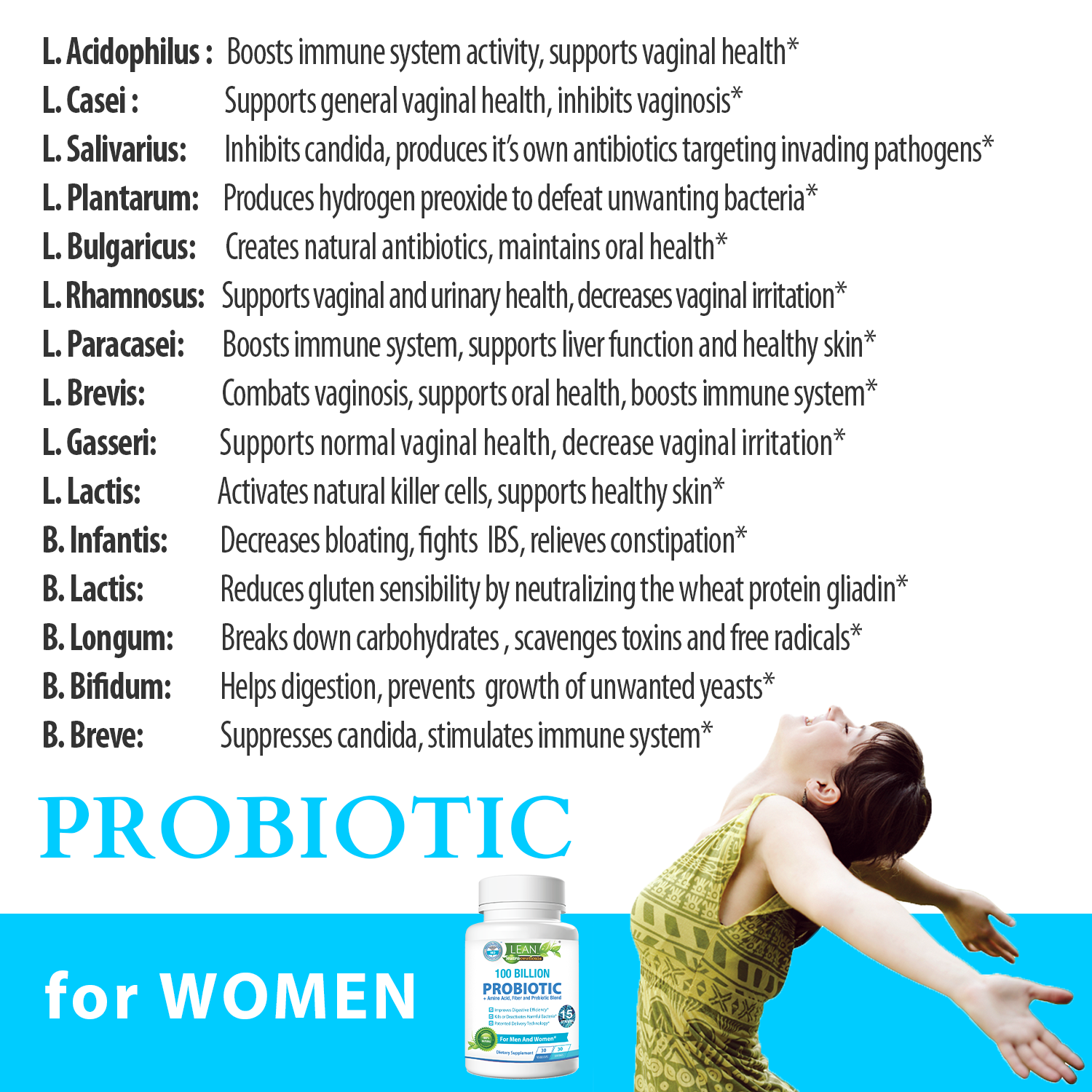
LINKS TO SUPPORTING RESEARCH ABOUT PROBIOTICS
Probiotics, those helpful little digestive bacteria heroes of natural medicine practitioners have moved to the centre stage of medical research in recent years. From cancer to ageing to diabetes, the potential range of benefits of probiotics is just beginning to become understood. Here are just a few articles to get you started on your quest for knowledge!
